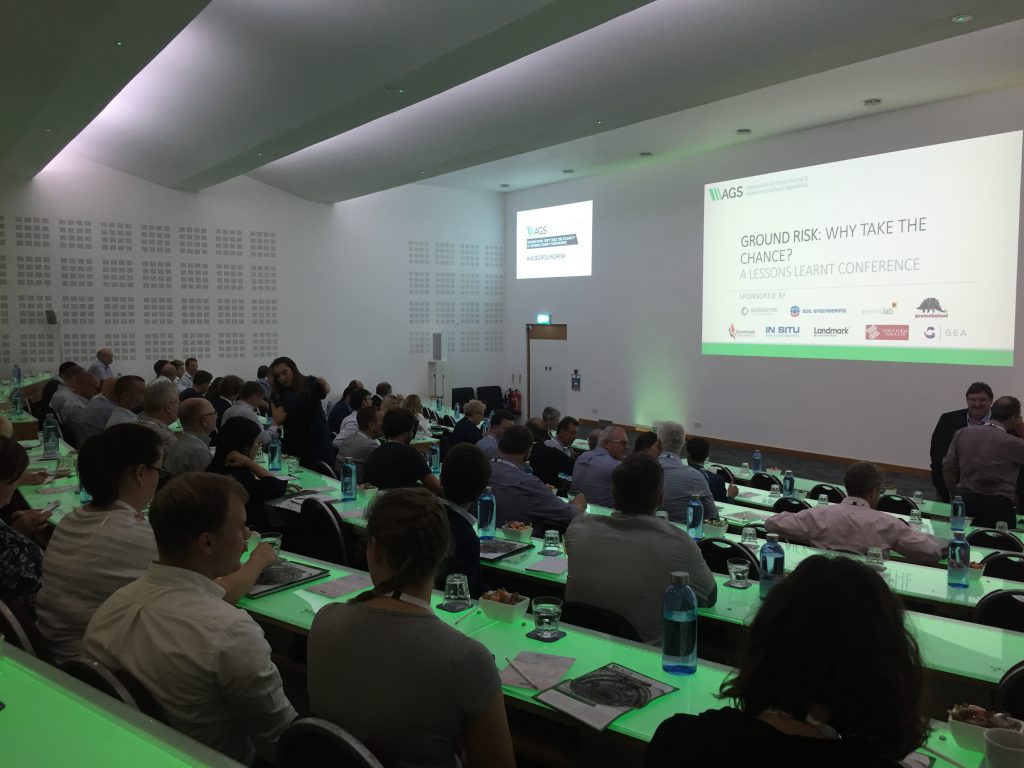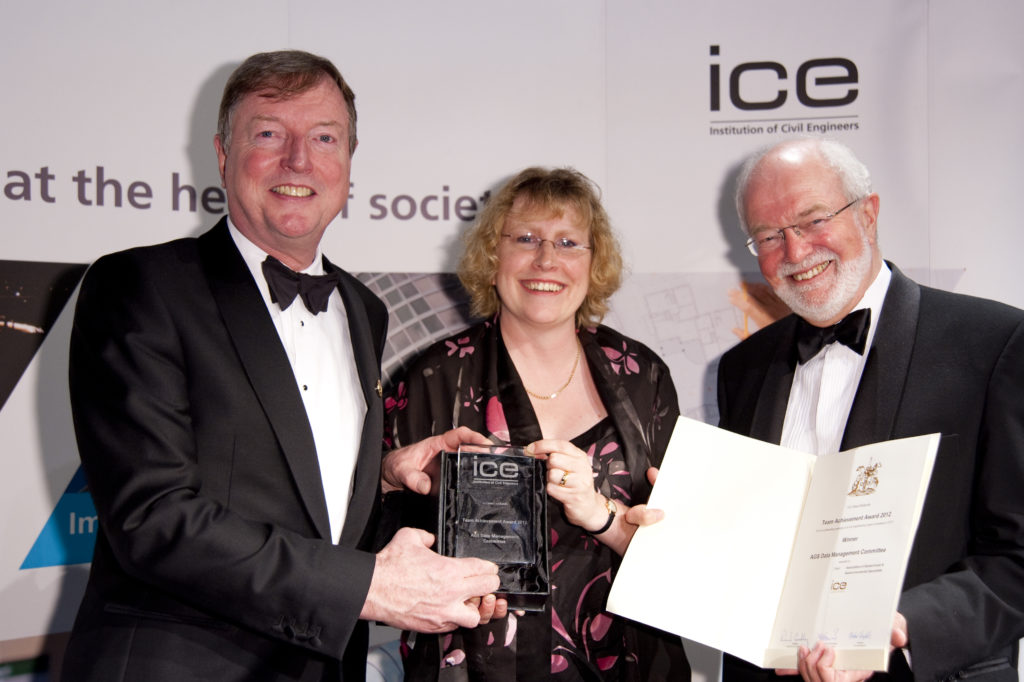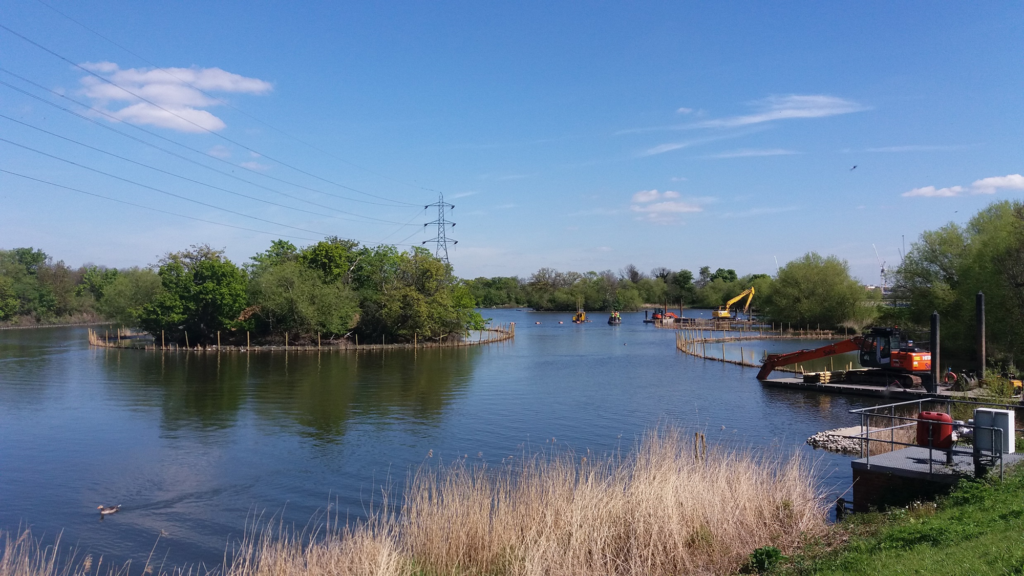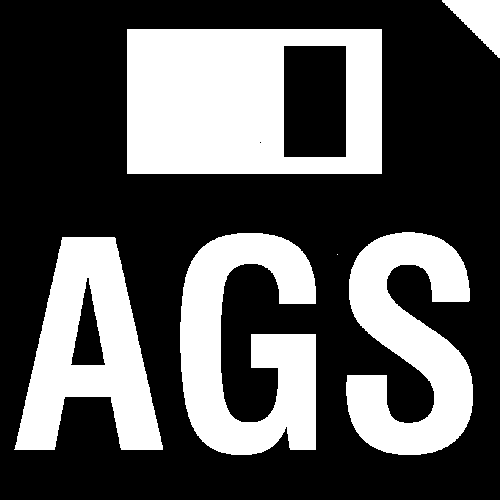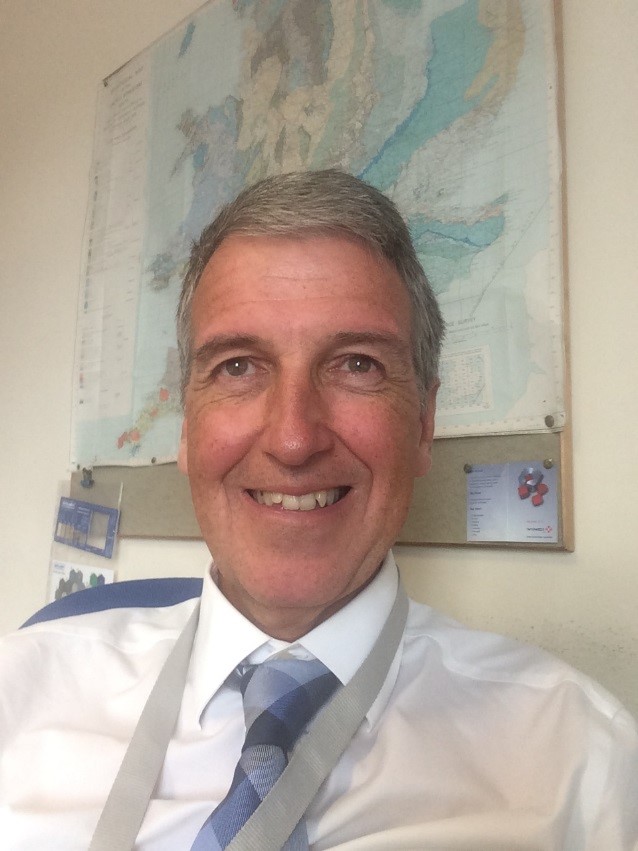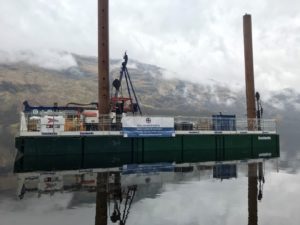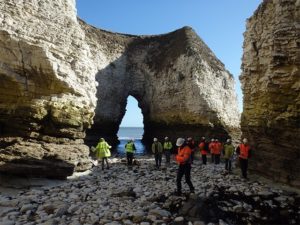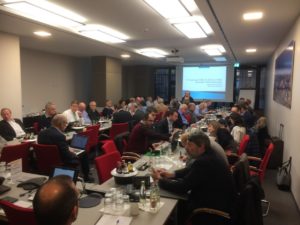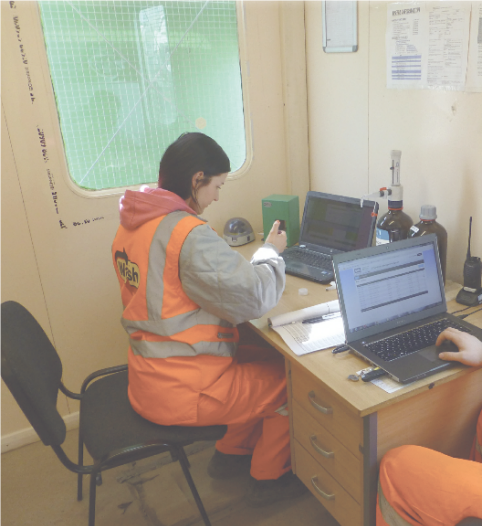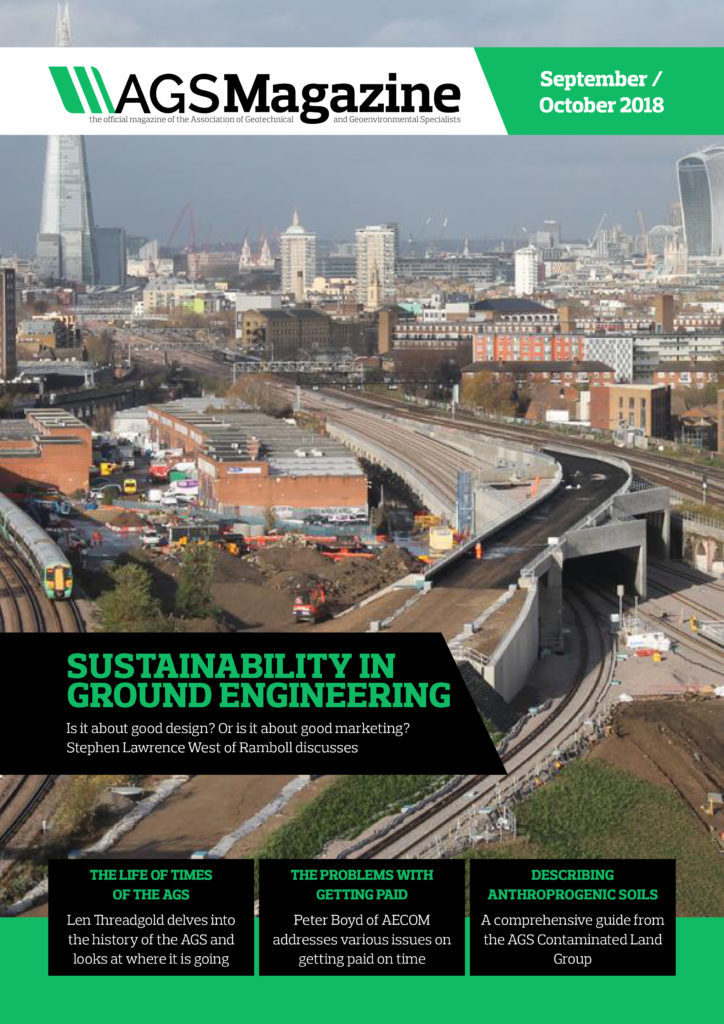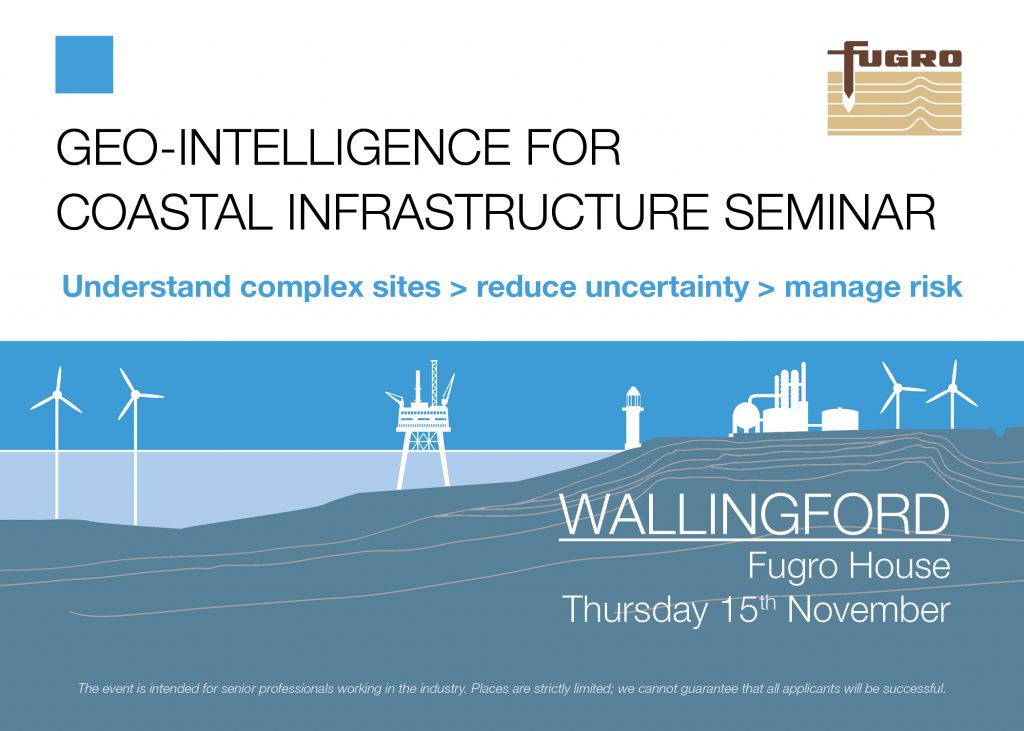In July’s edition of the AGS magazine, Chris Raison posed the question: ‘AGS Digital Data – Why is it so difficult to get?’ In an age where the transfer of data in digital format is the norm for most business sectors, his question is very pertinent. The ground investigation industry is often perceived as being antiquated and ‘behind the times’ in its methods, and the issue of data flow is no different. Working as I do for a major ground investigation contractor that has been supplying digital data in this format for many years, I thought it appropriate to try and answer the question he posed.
Firstly I should state that I have a lot of sympathy with Chris. My company Soil Engineering, is part of a much bigger group of companies (Soletanche Bachy) that deal exclusively with the ground (piles, diaphragm walls and secant pile walls to name but a few of the techniques we offer). Interacting as we do with other parts of the group, we know of the frustration that our operating companies and divisions have, regarding this subject. We routinely hear of multi-million pound piling schemes, trying to be designed on the basis of a few photocopied pages of exploratory hole logs and lab test data!
How can this be? As Chris notes in his article, we are now in the 21st century and the easy transfer of digital data (via the AGS medium), has been with us for a quarter of a century. There are several possible reasons for the current state of affairs and these are listed below:
• Procurement teams unaware / uninterested in digital data
• Smaller GI projects don’t require digital data
• Digital data produced for only some aspects of GI
• Full digital data produced and ‘gets stuck’ with clients professional team
Taking each of these in turn;
Procurement teams unaware
It could be argued that the AGS has not done enough to promote the benefits of the AGS data transfer medium. Surely if everyone saw how easy the system was and what the end benefits were, no one would hesitate to use it? The problem is perhaps linked to AGS membership. After all the AGS exists to promote best practice in the geotechnical and geoenvironmental sectors, so why wouldn’t all companies operating in these sectors aspire to become members of the AGS? Membership entitles members to use of the AGS digital data dictionary.
We are however where we are with regards membership and if we accept that for every member company there may be another nine non-members, then we are perhaps only reaching 10% of the market place. If the procurer is unaware of the AGS digital data format, then how can they be expected to specify it when preparing GI procurement documents?
The extract in Figure 1 is typical of a GI tender specification not requiring electronic data of any form!

Figure 1: Extract from a tender that only requires a paper copy of the report
Smaller GI projects don’t require digital data
SEGL is aware that many smaller and in particular non-public funded schemes do not stipulate a requirement for digital data in the specification. That is if the procurer even bothers to put together a specification! A small to medium sized GI may only be perceived to need a pdf copy of the report.
So the question then is what to do. If GI companies are not asked to provide a price for this service, then why should they provide it? People who say that producing AGS data is achieved via a ‘push of a button’ are sadly misguided! For a simple GI, compiling an error free digital data file can take less than an hour, but for more complex projects can take many hours. So there will naturally be a cost attached. Who should pay this cost if we automatically generated AGS data for every project?
And then what would the procurer do with the data given that they didn’t ask for, don’t understand and have no idea what to do with?
Digital data produced for only some aspects of GI
For a straight forward GI where all of the work is carried out by in-house resourcing (rigs and laboratory testing etc), the GI contractor should have no difficulty compiling a digital data submission. However where various aspects of the GI are outsourced (subcontracted), the subcontractor may not be able to supply data in AGS format, or they can’t supply the data in the latest format. So what to do then?
Whilst SEGL always aims to only procure subcontractors who can supply their data in the requisite format, there is still great variability in the quality offerings of such companies and sometimes it is impossible to get all the data in the required format. This applies to both geotechnical and chemical testing laboratories, geophysical contractors as well as specialist in situ testing subcontractors.
This latter point is very pertinent to the recent HS2 ground investigations. The client (HS2) quite rightly requested the latest version of the AGS data format. However every major GI contractor on the framework agreement experienced severe difficulties in obtaining the data in this format from subcontractors who were still working with the previous version!
Full digital data supplied and gets ‘stuck’ with clients professional team
SEGL supplies digital data for the majority of its contracts and certainly for all major contracts. As a company we pioneered embedding the AGS digital data file within the report pdf and some clients thought this a very good idea. Figures 2 and 3 illustrate what should be good practice for all GI’s:

Figure 2: Extract from a specification that is quite clear as to what is required in terms of reporting

Figure 3: Extract from the corresponding Bill of Quantities, allowing the contractor to price digital data
However, and this is a major however, since we work with other parts of our group, who are acting as subcontractors for say the installation of piles, we see what data they receive for their design. We are aware of major GI contracts (for which we have supplied full AGS data submissions), whose data has not found its way to the people who need it most, ie the pile designers! The same applies to numerous retaining wall and contiguous pile wall schemes.
So what is happening to the data? The answer is that much of the data is being retained by the clients professional team (consultants, structural engineers and architects etc), who do not pass it on either to main contractors or to smaller piling companies etc.
We are aware of a recent scheme for which we supplied digital data for some fifty boreholes and for which a piled solution was required. Much to our dismay we found that one of the companies in the group had spent hours re-entering all the exploratory hole data by hand into an Excel spreadsheet because they had only been given photocopies of logs! This is complete madness, but sad to say is an all too common occurrence.
What can be done?
The most obvious thing that can and should be done, is to better showcase the advantages of AGS digital data to the whole industry. In my view I believe that Chris is incorrect when he suggests that ‘many specialist GI contractors and Consulting Engineers have a misplaced view that AGS digital data is different to the GI report itself’. I believe that those who know about the AGS digital data format, know exactly what it is and what it does. The problem is that not enough procurers of GI’s either know about it or specify it. How many investigations are procured by structural engineers or architects etc who have no knowledge of the geotechnical industry, let alone knowledge of the AGS data digital format? This issue in itself accounts for many of the smaller GI’s that are procured each year.
There are further and alarming issues with other major consultants who know exactly what AGS digital data is, but who then request the data in Excel format only, because their design systems are set up as Excel spreadsheets! From my point of view this is missing the point completely, since they could easily receive data in AGS format and then import it into Excel. This would also make the data available for any users downstream, ie main contractors and specialist foundation contractors.
Chris also states that ‘it is time that the GI industry addressed this problem, added value to their reports and generally reduced the potential waste and experienced by users of their data’. Again in my opinion, Chris is addressing the wrong target audience here! All the larger quality GI contractors can and do provide AGS data when asked and without any problem. However, as we all know, those responsible for procuring GI’s invariably don’t select one of the larger quality GI contractors. Why? Well because they cost more! They will select ‘Cheap and Cheerful contracting’ and they will get exactly what they pay for, ie nothing of value. What a surprise!
I have attended and presented at numerous seminars and conferences over the last 25 years on the subject of adequate / fit for purpose GI. Everyone who attends agrees on the value of GI and on good quality data that is available to all those involved in the project life cycle. And yet nothing changes!
The solution lies primarily in the hands of those procuring GI’s. Perhaps more effort needs to be directed toward the ICE, ACE, RICS etc and also RIBA? In addition, perhaps we need to move to a more ‘American model’, where insurers require appropriate GI’s to be undertaken and data to be made available, in order to secure project funding.
If the UK ground investigation industry was to achieve this situation, the delivery of fit for purpose GI’s together with an attendant free flow of digital data might just become the norm!
This article is the personal view of the author and is intended as a discussion piece to continue the debate as to how the UK GI industry can improve the delivery of digital data.
Matthew Baldwin is the Technical Director at Soil Engineering and is a RoGEP advisor. Soil Engineering are an industry leading provider of ground investigation and ground stabilisation techniques.
This article was featured in the September/October issue of the AGS Magazine.
